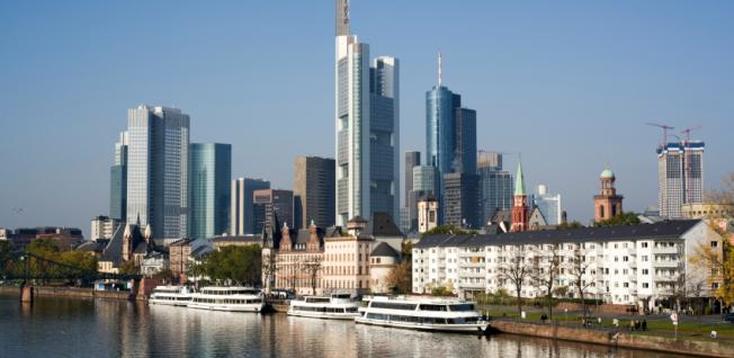.
|
Germany is a country best known for its forests, rivers and mountain ranges. The country is one of the largest in Europe and has a thriving tourist industry. With its castles, large houses and the mountainous countryside being major attractions, and many within only a short drive or train journey from major cities such as Frankfurt and Berlin. For the average tourist, equipped with a map, or accompanied by a guide with the ever-handy German phrase book and the fact many Germans speak very good English, a vacation is easy to undertake. But for the tourist or businessperson who wants to head off the beaten track, and explore some of the hidden gems of Germany, having more than a phrase book is important. There is a great deal more to see in Germany than one could well imagine, and by having a better grasp of the language, these places and more can soon be opened up, making a German leisure visit something special. With language, the weird and wonderful can be found and explored, and the conventional, seen how Germans see them. Take for example one of the strangest museums in the world, the German Food Additives Museum just outside Hamburg. For the non-German speaker this museum would be impossible to visit, as everything in the museum and about the museum, is in German. It is a fascinating small museum, and a real one of a kind, but only by speaking German can you really visit and understand this amazing place. It is not just specialist museums that are “off limits” to those who cannot speak German, some historical sites make little sense, and again because of the predominant use of German make then seem pointless to visit. One such place is the ruined airport not far from Berlin, where Claus von Stauffenberg could have ended World War II, but didn’t, when his assassination attempt on Adolf Hitler failed. Not only is the airport a fascinating part of fairly recent history, but it is truly a unique place that tantalises curiosity to visit. Without an understanding of the German language, so many small but interesting places to visit automatically fail to make a tourist agenda. Germany has many hidden gems. Even foods become more interesting, and what was once a seemingly bland and uninviting menu, becomes something you want to at least try. Being able to converse with the owner of a small back street café or restaurant can lead to some wonderful culinary adventures, coffee becomes more than black stuff in a cup and becomes a discussion about life with a local, and the meal becomes something enjoyable as you discuss specialities of the house with the host or chef. An understanding of the German language turns a German vacation, or day away from a German business trip, into something quite special and creates some amazing memories that without language could never even begin to form.
.
0 Comments
 Germany is a country that has an image of professionalism, precise engineering and an almost regimental way of doing things. After World War II Germany had to rebuild itself as a nation and part of what has become an almost perfectionist way of working was what saw the country grow and emerge from a lost war victorious. Today the strict and precise way of doing things is still important and appreciating this will certainly go a long way in ensuring your business success in the powerhouse of Europe. Language plays an important part when doing business in Germany, and despite the fact that many Germans speak English or another language, doing business well in Germany is made considerably better, easier and a great deal more successful, when German is spoken. The technicalities of business, is where having a grasp of the German language is more than just useful, but very much a necessity. Getting into the finer details of a transaction, understanding plans or a contract in German can be lost in translation when being explained in a language other than the native. German is a very descriptive language, and in contracts especially ambiguities can be easily avoided whereas there may not be a word or phrase that describes it well in any other language. There is, as always, a degree of respect that is gained by speaking German when doing business in Germany, and that respect is taken further by taking careful note of being on time. - Punctuality is on par with understanding the language, along with a number of other aspects, that can be easily avoided or better understood. - Mannerisms and hyperbole, saying things that sound too good to be true are important to understand and when doing business, Germans prefer to stick to the facts, focus on the job at hand, and get the job done to the best of or better than their ability. Germans are very direct communicators, and by speaking and using the language, this becomes almost natural for the non-native speaker who will soon adjust to the way of doing things. A sense of pride is inherent in Germans, and a strict hierarchy of things is clear to see in the way Germans do business. Small talk is not common when doing business in Germany, but proper and correct introductions in the mother German language go a long way in setting the tone. When it comes to choosing a partner, a German company will invariably choose a company or representative that speaks German. Not only does this make communication easier, but it allows for any discussions to expand beyond the initial contracts because the people being worked with, receive a generally higher level of respect than non-German speakers. Don’t just assume that your German counterpart will speak English, more than likely he or she will, but do your best to converse in German – German people are very understanding and will help you find the right words because they can see you making an attempt.
|
Archives
April 2024
AboutThese blogs are about learning a foreign language and utilising that skill to forward your professional path. Categories
|









